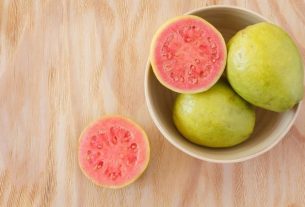One of the best home remedies for intestinal infections is homemade serum, made with water, sugar and salt, as it helps to replace the minerals and water lost due to diarrhea, preventing dehydration and ensuring that the body has all the minerals necessary to combat intestinal infections. microorganisms from the infection and have a faster recovery.
In addition to homemade serum, other home remedy options for intestinal infections are ginger water or peppermint tea, as they contain substances with anti-inflammatory, antispasmodic and antiemetic effects, which help to alleviate the symptoms of the infection, such as diarrhea, excess intestinal gas or vomiting, for example. Check out a complete list of intestinal infection symptoms.
Home remedies can be used to alleviate the symptoms of intestinal infection, but if there is no improvement within 2 days, it is recommended to consult a general practitioner or gastroenterologist so that treatment with medication can be started, if necessary.
1. Homemade serum
Homemade serum is an excellent option for a home remedy for intestinal infections, as it is rich in mineral salts and sugar, which keeps the body functioning and prevents dehydration that can occur due to diarrhea or even vomiting. Know how to identify the symptoms of dehydration.
Ingredients
- 1 liter of filtered, boiled or bottled mineral water;
- 1 heaped tablespoon of sugar or 2 level spoons of sugar (20 g);
- 1 teaspoon of salt (3.5 g).
Preparation mode
Mix all ingredients well until you obtain a transparent mixture. Drink 2 to 3 liters a day, in small sips, several times a day.
2. Ginger water
Ginger is a root with excellent medicinal properties, which can be used to treat intestinal infections as it has antiviral and antibacterial effects that help the body fight infection. Furthermore, it also regulates intestinal transit and relieves inflammation of the intestinal mucosa, reducing abdominal pain and swelling.
Ingredients
- 2 cm of ginger root;
- 1 cup of mineral or filtered water.
Preparation mode
Peel the ginger slices and cut into smaller pieces. Add the ginger to a pan, add the water and let it boil for 5 minutes. Let cool, strain and drink up to 3 cups of tea per day.
Ginger water should be avoided by people who use anticoagulants such as warfarin or aspirin as it may increase the risk of bleeding or hemorrhage. Furthermore, women who are pregnant, close to giving birth or have a history of miscarriage, clotting problems or are at risk of bleeding should avoid using this tea.
3. Peppermint tea
Peppermint tea relieves inflammation and soothes irritation of the intestinal wall and is therefore a great option to complete the treatment of intestinal infection. This tea also absorbs excess intestinal gas and has antispasmodic properties that greatly relieve abdominal discomfort.
Peppermint also calms the stomach and, therefore, can help a lot in cases of intestinal infection accompanied by gastric symptoms such as nausea or vomiting.
Ingredients
- 2 to 3 tablespoons of fresh, dried or crushed peppermint leaves;
- 150 mL of boiling water.
Preparation mode
Place the peppermint leaves in a teacup and fill with boiling water. Let it rest for 5 to 7 minutes and strain. This tea should be drunk 3 to 4 times a day.
Peppermint tea should not be used by children under 5 years of age, pregnant or breastfeeding women, or by people who have gastroesophageal reflux or hiatus hernia, for example.
Taking care of your health has never been easier!
4. Water with lemon juice
Lemon juice is a great natural remedy for cleaning impurities from the intestine, also eliminating microorganisms responsible for infections, as well as allowing you to regulate intestinal transit more easily, relieving various symptoms such as abdominal pain, cramps, loss of appetite and diarrhea.
Furthermore, lemon juice is rich in vitamin C that helps strengthen the immune system to fight intestinal infection.
Ingredients
- Half a lemon;
- 1 glass of warm water.
Preparation mode
Squeeze the juice from half a lemon into a glass of warm water and drink it once, in the morning on an empty stomach. Discover all the benefits of drinking water with lemon every morning.
5. Garlic tea
Garlic tea is rich in allicin and saponins that have anti-inflammatory, antioxidant and antibacterial action, which help fight bacteria that cause intestinal infections, such as Salmonella spp., Escherichia coli e Staphylococcus aureusin addition to helping to strengthen the immune system to fight infection.
Ingredients
- 1 clove of chopped garlic;
- 100 to 200 mL of water.
Preparation mode
Boil the water and add it to the cup containing the chopped garlic. Crush the garlic well and let it rest for 5 to 10 minutes. Then remove from heat, strain and let cool.
To improve the flavor of the tea, you can add 1 dessert spoon of honey, for example. However, honey should not be added to people who are allergic to pollen, honey or propolis.
6. Fennel tea
Fennel tea has antispasmodic, anti-inflammatory, analgesic and digestive effects, due to the presence of substances in its composition, such as anethole, ursole and alcamphor, making it an excellent option for a home remedy to reduce colic, gas, diarrhea, nausea and vomiting caused by intestinal infection.
Ingredients
- 1 spoon of fennel seeds;
- 1 cup of boiling water.
Preparation mode
Add the fennel seeds to the cup of boiling water. Cover and let it cool for 10 to 15 minutes. Strain and drink 2 to 3 cups a day. Another option for preparing this tea is to use a fennel tea bag.
Fennel tea should not be used by pregnant or breastfeeding women.
7. Chamomile tea
Chamomile tea, made from the medicinal plant Matricaria recutitais rich in phenolic compounds such as apigenin, quercetin and patuletin, with anti-inflammatory and calming properties, which reduce the stimulation of the gastrointestinal tract, relieving colic caused by intestinal infection.
Ingredients
- 2 teaspoons of dried chamomile flowers;
- 250 mL of boiling water.
Preparation mode
Add the dried chamomile flowers to a cup of boiling water, cover, let it rest for about 5 to 10 minutes and strain before drinking.
This tea can be drunk 3 times a day, and if necessary, it can be sweetened with a teaspoon of honey.
Another way to prepare chamomile tea is using a tea bag, which can be found in supermarkets or pharmacies. Check out other ways to prepare chamomile tea.
8. Willow tea
Salgueirinha tea, made with the medicinal plant Lythrum salicaria L., is rich in castalagin, vescalagin and salicarinins, with antibacterial and antidiarrheal properties, which help alleviate the symptoms of intestinal infection.
Ingredients
- 2 tablespoons of salt salt;
- 1 liter of water.
Preparation mode
Boil the water, turn off the heat and add the salt. Let it rest for 5 to 10 minutes. Strain, wait for it to cool and drink 1 cup up to 3 times a day.
Salgueirinha tea should not be used by pregnant or breastfeeding women.
How to ensure faster recovery
During an intestinal infection, some precautions are recommended, such as:
- Drink plenty of fluids, for example water, coconut water and natural fruit juices;
- Maintain rest at home, avoiding going to work;
- Eat light foods, such as fruits, cooked vegetables and lean meats;
- Do not eat indigestible and fatty foods;
- Do not consume alcoholic or carbonated drinks;
- Do not take medication to stop diarrhea.
If the intestinal infection does not disappear within 2 days, the individual should be taken to the hospital for a medical consultation. Depending on the microorganism causing the disease, hospitalization and intravenous antibiotics may be necessary.

Sign up for our newsletter and stay up to date with exclusive news
that can transform your routine!
Warning: Undefined array key "title" in /home/storelat/public_html/wp-content/plugins/link-whisper-premium/templates/frontend/related-posts.php on line 12
Warning: Undefined array key "title_tag" in /home/storelat/public_html/wp-content/plugins/link-whisper-premium/templates/frontend/related-posts.php on line 13




